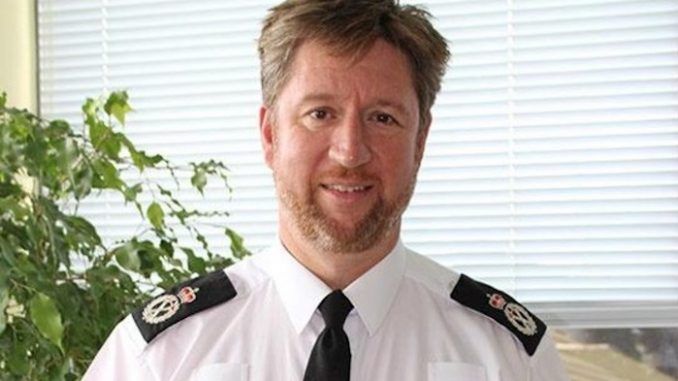
A leading child protection officer in the UK has said that most pedophiles do not deserve to go to jail, despite the fact that child rape crimes in Britain are on the rise.
Chief Constable Simon Bailey told the BBC that pedophiles who view indecent images of children should not be imprisoned due to the fact that the prison system is full to the brim with criminals already.

BYPASS THE CENSORS
Sign up to get unfiltered news delivered straight to your inbox.
You can unsubscribe any time. By subscribing you agree to our Terms of Use
BBC News reports:
Figures show the number of child abuse reports is up by 80% in three years.
The Home Office said “viewing child abuse images is a terrible crime and should be treated as such”.
Chief Constable Bailey, the head of Operation Hydrant, which is investigating multiple allegations of historic sexual abuse across the UK, said he knew his view would cause nervousness and draw headlines.
But he said the numbers of reports of abuse were at “huge proportions” – an NSPCC study in late 2016 used figures which suggested the number of individuals looking at such images could exceed half a million.
‘Contact cases’ focus
He told BBC Radio 4’s Today programme about 400 people were arrested by police in conjunction with the National Crime Agency every month, for looking at indecent images.
“There are undoubtedly tens of thousands of men that are seeking to exploit children online with a view to meeting them, with a view to then raping them and performing the most awful sexual abuse upon them,” he said.
“That’s where I believe our focus has got to be. They are the individuals that pose the really significant threat.”
Offenders who viewed online child abuse images should be placed on the sex offenders register, cautioned and managed in the community undergoing rehabilitation, he said.
Referrals to rehabilitation “increasingly are effective”, he said and not using the court system would “speed things up”.
He added: “Every time an image is viewed, the victim is being victimised again and there is nothing as abhorrent. But we have to be able to manage the totality.”
A Home Office spokesperson said the government had committed £20m to the National Crime Agency for specialist teams to tackle online child sexual exploitation.
“Alongside ensuring we have a tough law enforcement response to bring offenders to justice, we are also committed to preventing offending in the first place,” they added.
The NSPCC agreed that prison sentences served a vital purpose in terms of public protection, justice, and acting as a deterrent.
But a spokesman added: “We cannot arrest our way out of the situation. If we are to protect more children we must make prevention and rehabilitation a priority.”
‘Not naive’ to offenders
Those working in the area are already stretched.
Lisa Thornhill, is a senior practitioner at the Lucy Faithfull Foundation, which works with people who have sexually harmed or fear they may harm a child.
It offers “non-judgemental support” to help to change people’s behaviour – such as a 10 week group programme, its website and Stop it Now confidential helpline.
Calls to the helpline are over capacity – about 800 people each month call, but about 2,500 calls are unable to be taken due to demand.
While the organisation was “not naive” to the fact that some sex offenders were solely motivated to access children for abuse, she said, there was “a moral responsibility to help those who want it”.
Natcen research on the helpline showed the importance of support, she added.
“Most people who commit these offences have some idea what they are doing is wrong,” she said. “We appeal to the brave and responsible part of those people to get in touch with us and stop, and stay stopped.”
Chief Constable Bailey’s comments came as the Independent Inquiry into Child Sexual Abuse in England and Wales (IICSA) began its full public hearings on Monday with an examination of allegations made by children in care who were sent abroad.
The wide-reaching inquiry will look at child abuse claims against local authorities, religious organisations, the armed forces and public and private institutions – as well as people in the public eye.


Castration should be offered as an alternative to prison.
Yes, if it REALLY is molesting children, or anyone!
Just “viewing images” is not pedophilia. One who watches a murder mystery is not a murderer.